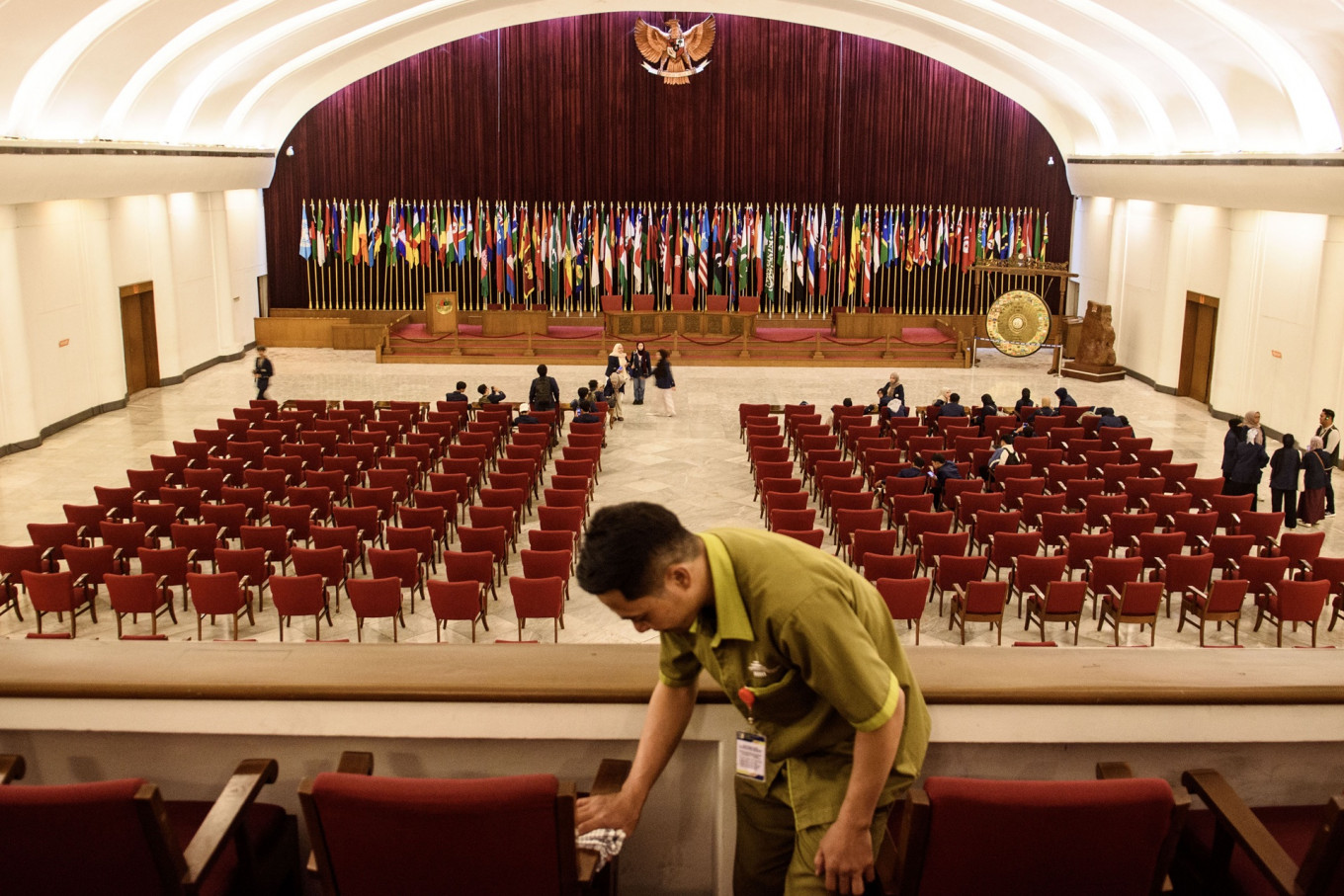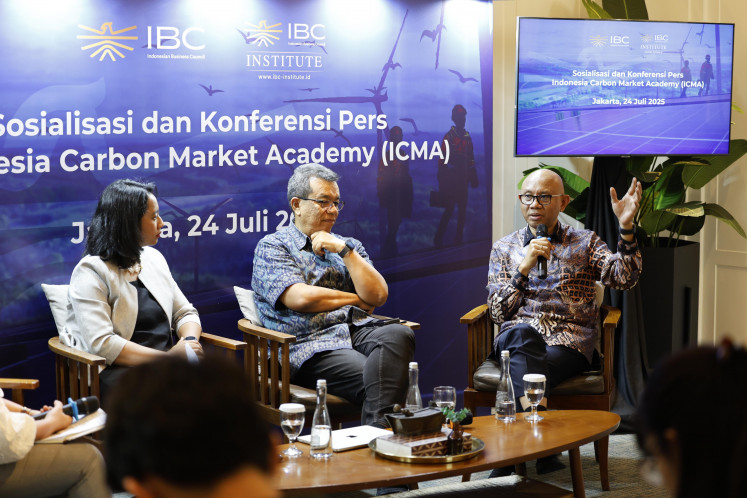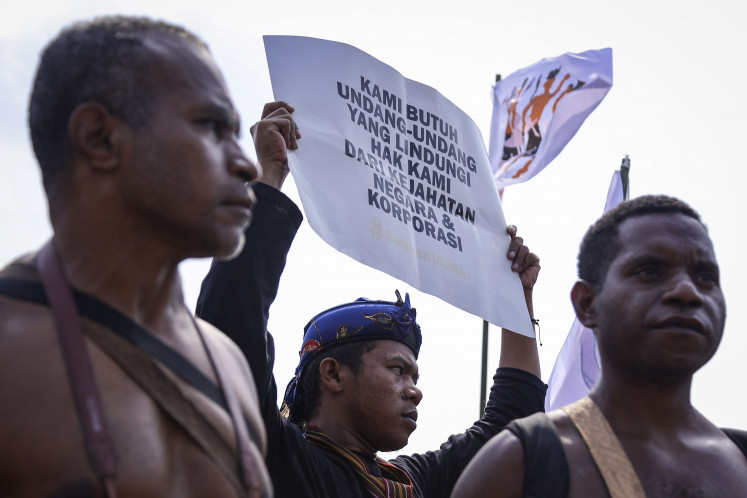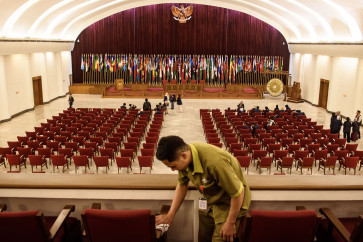Popular Reads
Top Results
Can't find what you're looking for?
View all search resultsPopular Reads
Top Results
Can't find what you're looking for?
View all search resultsThe world hails Bandung, but Indonesia forgets
Forgetting is easier than confronting the truth that Bandung represents: that freedom is not only the absence of colonial rule, but the commitment to dignity, solidarity, and justice within the nation and beyond.
Change text size
Gift Premium Articles
to Anyone
 A worker cleans chairs at the main hall of the Merdeka Building on April 16, 2025, in Bandung, West Java. The building was the venue for the 1955 Asia-Africa Conference, also known as the Bandung Conference, where 29 Asian and African countries convened in the spirit of anti-colonialism. (Antara/Novrian Arbi)
A worker cleans chairs at the main hall of the Merdeka Building on April 16, 2025, in Bandung, West Java. The building was the venue for the 1955 Asia-Africa Conference, also known as the Bandung Conference, where 29 Asian and African countries convened in the spirit of anti-colonialism. (Antara/Novrian Arbi)
I
n a packed room, scholars from the Philippines and across the region patiently listened and enthusiastically asked questions on the meaning of the Bandung Spirit (Bandung's Ten Principles) for them and for their country.
This scene did not unfold in Jakarta or Bandung, where such conversations might seem natural or expected. It took place in Manila, inside the De La Salle private university, which jointly organized the commemoration of the 70 years of the Bandung Spirit with the University of the Philippines Diliman.
Two of Southeast Asia’s most thoughtful scholars, Syed Farid Alatas and Noor Aisha Abdul Rahman of the National University of Singapore, made the journey there to share their reflections. Alatas, a leading voice in postcolonial studies and a pioneer in the movement for autonomous knowledge production in the Global South, reminded the audience that the global impact of the 1955 Bandung Conference is undeniable. It reshaped the political consciousness of the postcolonial world. For him, Bandung had been not merely an event, but a continuing orientation: a commitment to resisting domination, to building intellectual independence and to imagining a world order that does not privilege the powerful at the expense of the newly free.
Just weeks earlier, a delegation of dozens of scholars, mostly from Xiamen University in Fujian, China, flew to Yogyakarta to join a similar conference at Gadjah Mada University to commemorate Bandung’s 70th year because they know and appreciate the importance of the event for China and the world. At the Ubud Writers and Readers Festival in Bali early this month, the Belgian writer and historian David Van Reybrouck spoke repeatedly, and with admiration, about Bandung as one of the turning points in global history.
It is striking that such reverence and intellectual curiosity surrounding Bandung is surging across Asia and beyond, and yet inside Indonesia, the state appears almost reluctant, even uneasy, to remember it.
The silence is not accidental. To speak of Bandung is to acknowledge the greatness of former president Sukarno, not as myth, but as a statesman recognized across Asia, Africa and Latin America as a symbol of dignity and resistance. And this is where domestic politics enters, quietly but decisively.
President Prabowo Subianto does not rule in a vacuum; he rules in a political landscape shaped by memories, loyalties, wounds and unfinished conflicts. His relationship with the Indonesian Democratic Party of Struggle (PDI-P) and its chair, Sukarno’s daughter Megawati Soekarnoputri, has become increasingly strained, particularly after a suggestion that PDI-P was behind the massive protests and riots that erupted at the end of August.


















